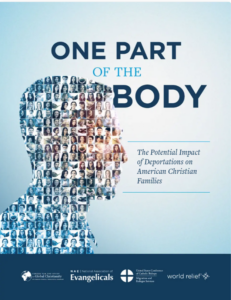
WASHINGTON (BP)–Many U.S. corporations that already have homosexual-friendly policies in place in their employee hiring and retention practices now have achieved a perfect score by adding “gender identity” to their non-discrimination policies, a leading homosexual advocacy organization said Aug. 13, CNSNews.com reported.
But family groups and legal experts warned that adding such criteria as “gender identity” to the policies opens the door to lawsuits by employees and higher medical insurance premiums for the companies.
Some 13 companies earned a 100 percent score on the Human Rights Campaign’s new “Corporate Equality Index” by adding “gender identity” to company non-discrimination policies, the HRC said.
“Eighty of the companies rated, or 25 percent of the total, met every criterion of the index except for having a gender identity non-discrimination policy,” Kim Mills, education director with the HRC, said at a news conference. Those companies received scores of 86 percent, she said.
The 13 companies that achieved a perfect score by the HRC are Aetna Inc.; American Airlines; Apple Computer Inc.; Avaya Inc.; Eastman Kodak Co.; Intel Corp.; J.P. Morgan Chase & Co.; Lucent Technologies Inc.; NCR Corp.; Nike Inc.; Replacements Ltd.; Worldspan L.P.; and Xerox Corp.
Three companies — Cracker Barrel, Emerson Electric Co. and Lockheed Martin Corp. — scored zero, the HRC reported, because none had policies on homosexual employees and had resisted shareholder resolutions urging them to include sexual orientation in their non-discrimination policies.
The HRC rated the companies on whether they had a written non-discrimination policy covering sexual orientation and a written non-discrimination policy covering gender identity, said Daryl Herrschaft, associate director of HRC WorkNet, the organization’s workplace advocacy project.
Companies also were rated on whether they offer health insurance coverage to their employees’ same-sex domestic partners; diversity training that includes sexual orientation and gender expression in the workplace; advertise to the homosexual community; or provide financial support to AIDS and HIV prevention organizations or events.
Companies also were rated on whether they engaged in any corporate action that would undermine the goals of equal rights for “lesbian, gay, bisexual and transgendered people,” Herrschaft said.
The 319 rated companies were drawn from the 2002 Fortune 500; the 200 largest privately held companies from the 2001 Forbes Private 500; and from information collected by the HRC on other companies with at least 500 employees, Herrschaft said.
Jordan Lorence, an attorney and senior vice president of the Alliance Defense Fund, a conservative public policy group, said the HRC failed to point out, however, that many corporations adopted domestic partner benefits in response to San Francisco’s ordinance compelling them to do so if they want to do business with the city.
The HRC “made it sound as if this was a voluntary progressive vision of enlightenment that was descending on corporations rather than … something that was done under duress,” he said.
Moreover, by making “gender identity” a protective class, the HRC is now “making transsexual issues equal in importance to homosexual issues,” Lorence noted.
“That means if a man at a company starts wearing a dress or starts using the women’s restroom because he’s ‘a woman trapped in a man’s body,’ [the company] can’t do anything about that or they have to have diversity training for the complaining employees because they protect people from discrimination based on gender identity,” he said.
In addition, companies that add gender identity to non-discrimination policies “I think will find their medical insurance rates going up as they are compelled to pay for sex-change operations for employees,” Lorence said.
By adopting these policies, “corporations unwittingly chain themselves to a political agenda that, as we see now with gender identity, just seems to have more and more demands added to it,” he said.
The HRC cited the Oregon Citizens Alliance and Focus on the Family as groups that are engaged in anti-homosexual activities and should not be supported.
Lon Mabon, chairman of the Oregon Citizens Alliance, said the HRC’s “definition of anti-gay is what I think Focus on the Family and the Oregon Citizens Alliance opposes, which is a political agenda to make homosexuality normal and acceptable by using the force of government.”
John Paulk, Focus on the Family’s homosexuality and gender analyst, said the HRC survey was an attempt by the HRC to intimidate corporations to buy into their pro-homosexual agenda.
“There’s no statistics that demonstrate homosexual Americans are fired from their jobs simply because of their sexual choices,” he said.
When the HRC officials talk about Focus on the Family, they should remember that “there are many people on staff here who had been previously involved in homosexuality and there are people from all sorts of diverse backgrounds that work for conservative organizations,” Paulk said.
–30–
Morahan is a senior staff writer with www.CNSNews.com. Used by permission.














